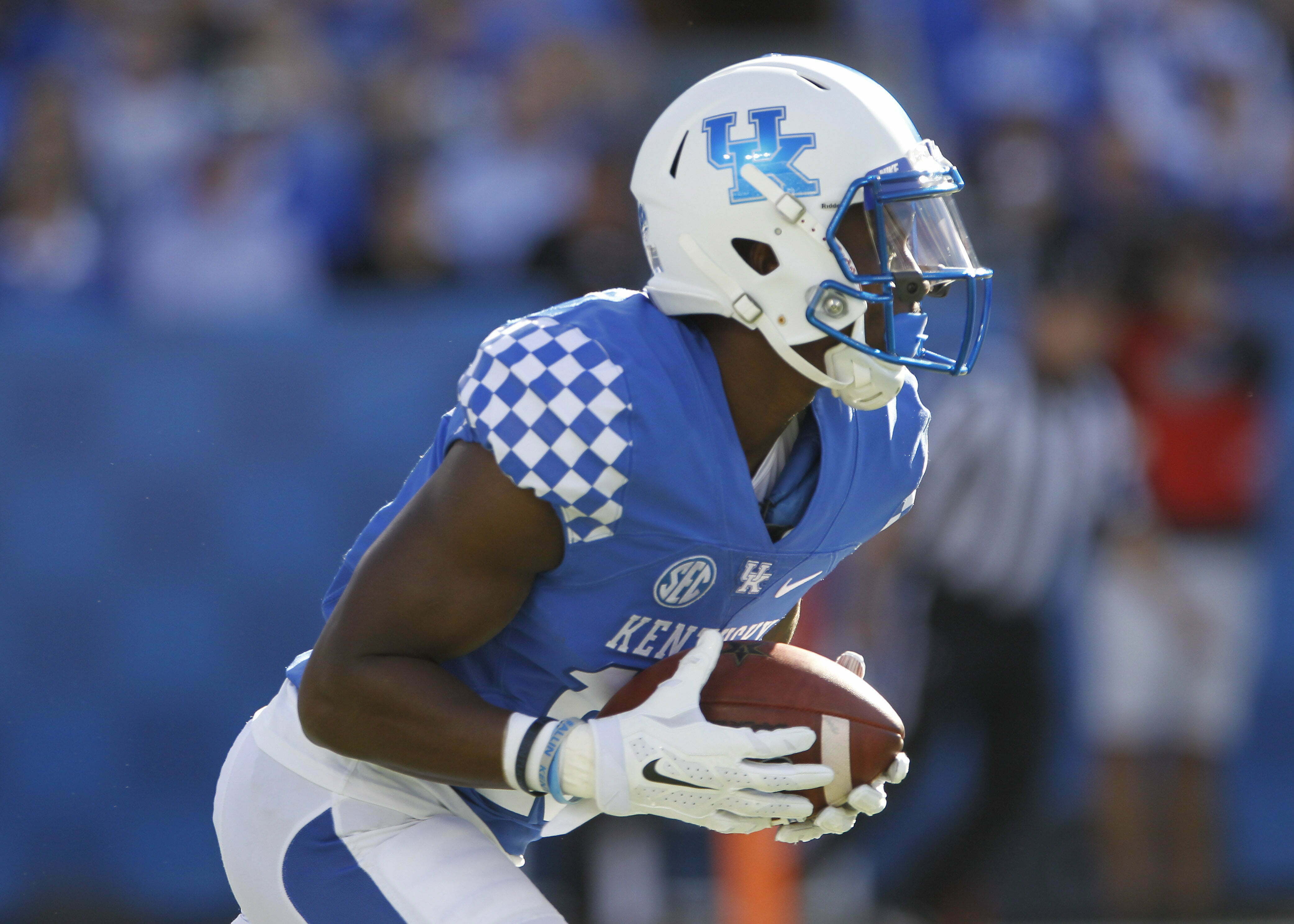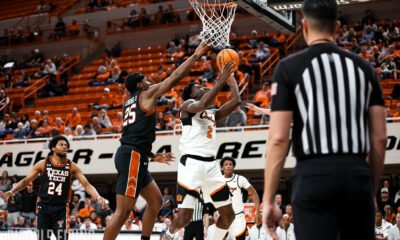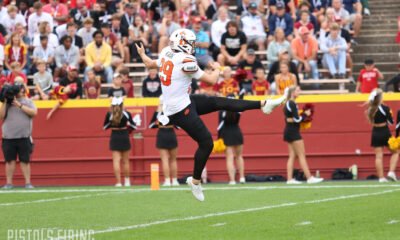Football
League Wide: Baylor’s Reform and the Big 12’s Graduate Transfer Trend

Let’s take a look at some news around the league from this week.
Reforming the Bears
Tram highlighted some positive news coming out of Waco on Monday.
They want governmental involvement. They want to tear back the shroud that accompanies private schools. That shows the seriousness with which some Baylor supporters view the scandal.
That’s a very good thing.
The Baylor group staged town hall meetings in February, urging support for reforms.
“The root of all this is lack of leadership, and we believe there needs to be major changes to leadership,” Williams, whose group organized in November, said in February. “I will say I’m encouraging those on the board who feel the way that we do to stand up to the rest of the people on the board and say, ‘It’s time to have full transparency and accountability and not to have this attitude of coverup and dribbling out facts on a narrow basis.’”
This Baylor group offers hope that reform will come to Baylor, and that the culture will change. [NewsOK]
Private universities are allowed to operate under a shroud of secrecy because they don’t receive (as much) public funding as state schools do. Now the fact that they do receive some funding for scholarships and such leaves them in a gray area, where taxpayer insight is fair to ask for.
Here is an example of a Baylor alum and leader (the playing surface in McLane Stadium is named after him) stumping for public oversight to avoid covering up the truth in the future. Not for the demise of the school but for truth to come out so that victims can be vindicated, miscreants to bear the full weight and for the university to rebuild and move on.
Stuck Doors
The Sooners could use the excuse that the Big 12’s perception is holding them back but good luck doing anything about it.
President David Boren has taken his shots at the Big 12 at different times. But exiting a power conference isn’t easy. There’s the granting of rights that runs through 2024-25 and coincides with the Big 12’s TV contracts with Fox and ESPN. Challenging a grant of rights could be expensive and time consuming legally. Does Oklahoma want out badly enough to force the issue? And what about Oklahoma State, which has been viewed as partner with OU in any realignment? [SportsDay]
Porter had some great thoughts on the topic, namely the long-term unstable environment that is media deals and in turn, how the green on the other side of the fence may not be that color forever. As a fan of a non-helmet school, the idea of landing somewhere sooner than later seems ideal but the question for all involved is when can they get there.
Until the grant of rights is broken (or the mid 2020s), this flying-the-coop business is just off-season fodder.
Free Agent Signings
Gundy provided some good thoughts on graduate transfers in college football.
If signing day is college football’s version of the draft, the grad transfer practice has become its free agency.
“These young men who come in, they know everything,” Oklahoma State coach Mike Gundy said. “They’re smart. They’re college graduates. They know this is their last year and are looking for somewhere where they can fit in.”
The grad transfer rule, adopted in 2006, allows players — already physically developed and usually rather seasoned — who earn their undergraduate degree before completing their eligibility to transfer without having to sit out. Quarterback Russell Wilson became the cover boy for grad transfers when he left North Carolina State in 2011 to play his final season at Wisconsin, and led the Badgers to a Big Ten championship.
The movement has since ballooned.
“It’s changed in the last couple of years,” Gundy said. “It’s become so popular now.” [ESPN]
The Pokes have had a defensive player per grad transfer since 2013 (Tyler Patmon from KU, Josh Furman from Michigan, Michael Hunter from Indiana, Lenzy Pipkins from UL-Monroe and this year’s Adrian Baker from Clemson) to go with Barry J. Sanders and Aaron Cochran, a boon for the Cowboys.
Other teams in the league have benefitted as well: OU has had a receivers (Kentucky’s Jeff Badet this year, Penn State’s Geno Lewis) and Texas recently made a play for LSU quarterback Brandon Harris as a grad transfer. We have yet to see a Russell Wilson-to-Wisconsin magnitude of transfer in the Big 12 but it’s a trend to watch.
The Right Question
Berry Tramel gets to the heart of the issue of what’s ailing the Big 12: recruiting.
All of the Big 12’s recruiting has suffered since the conference was raided by other leagues. In the six drafts from 2006-11, Texas had 32 draft picks, but just the 13 since. OU had six first-round picks, with just Lane Johnson since.
Television money has been the driving force of conference realignment. But when the Big 12’s talent doesn’t trump the American Conference’s talent, when the dregs of the SEC are recruiting better than some of the Big 12’s better programs, when Texas is getting lapped by Texas A&M in recruits’ homes, when OU is getting outrecruited not just by Alabama and LSU, but by Ole Miss and Florida and Florida State, the football people jump on the bean-counters’ bandwagon.
Recent NFL drafts tell us the sobering truth that Big 12 recruiting must pick up, or the conference is doomed. [NewsOK]
Berry discerned that the right question is how in the world the Big 12 is remaining so competitive with so little NFL production. Reading the absurd but true facts that Western Michigan tied Big 12 draftees in the first two rounds this year and that the American had more players drafted than the Big 12 makes you really wonder.
The bitterest pill to swallow is that there’s hardly a positive conclusion to come to – just do what you can with what you can get.

-

 Hoops5 days ago
Hoops5 days agoFIU Transfer Arturo Dean Commits to Oklahoma State
-

 Hoops3 days ago
Hoops3 days agoTexas Tech Transfer Robert Jennings Commits to Oklahoma State
-

 Golf5 days ago
Golf5 days agoOSU Freshman Preston Stout Sinks Long Putt to Earn Share of Big 12 Title
-

 Football5 days ago
Football5 days agoAustrailian Punter Hudson Kaak Details Transition to Stillwater, Football






